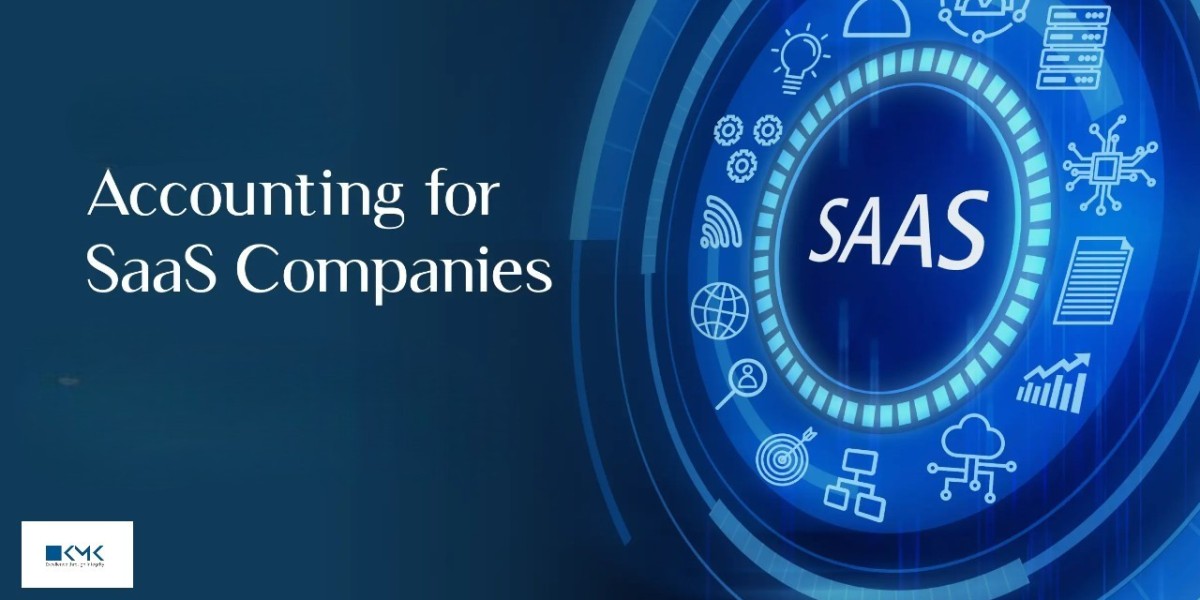Running a SaaS startup in the U.S. is exciting, but it also comes with complex financial challenges. Unlike traditional businesses, SaaS companies rely on subscription-based revenue models that involve recurring billing, deferred revenue, and metrics like churn, CAC (Customer Acquisition Cost), and LTV (Customer Lifetime Value). For founders focused on growth, managing these financial details in-house can be overwhelming and expensive. That’s where saas outsourced accounting comes in. By outsourcing finance functions to experienced professionals, SaaS startups can save time, cut costs, and gain the financial clarity needed to scale faster. This ultimate guide, brought to you by ExpertiseAccelerated, will walk you through why outsourcing makes sense, what services to consider, and how to choose the right partner for your SaaS business.
Why Finance Is So Complex for SaaS Startups
Accounting for a SaaS startup isn’t like accounting for a retail store or consulting firm. Here’s why:
Recurring Revenue Models: Instead of one-off sales, SaaS companies must manage subscription cycles, upgrades, downgrades, and cancellations.
Revenue Recognition Rules: Under ASC 606, revenue must be recognized over time, not immediately at payment.
Deferred Revenue: Prepaid annual subscriptions create liabilities that must be tracked carefully.
Key SaaS Metrics: Investors and stakeholders expect detailed reporting on MRR (Monthly Recurring Revenue), ARR (Annual Recurring Revenue), churn, and retention.
Global Customers: Many SaaS startups serve international clients, which adds cross-border tax and compliance challenges.
This level of complexity makes financial management time-consuming—and mistakes can be costly.
What Is SaaS Outsourced Accounting?
SaaS outsourced accounting is when a startup partners with an external finance provider to manage accounting, bookkeeping, payroll, tax, and financial reporting using cloud-based platforms. Unlike traditional outsourcing, this model is built around the needs of SaaS businesses.
Outsourced accounting partners bring:
Expertise in SaaS finance (MRR, ARR, CAC, LTV)
Cloud-based tools like NetSuite, QuickBooks Online, or Xero
Scalable services that grow as your subscriber base expands
Strategic insights through virtual CFO services
For U.S. SaaS startups, this approach ensures compliance and efficiency without the high costs of building a full in-house team.
Why U.S. SaaS Startups Should Outsource Finance Functions
Wondering whether outsourcing is right for you? Here are the main benefits:
1. Cost Efficiency
Hiring a full-time CFO, controller, and accountants is expensive. Outsourcing gives startups access to financial expertise at a fraction of the cost.
2. Scalability
As your subscriber base grows, so do your transactions. Outsourced accounting teams scale with you, so you don’t need to rehire or restructure.
3. Compliance and Accuracy
With ASC 606, GAAP standards, and evolving tax laws, compliance is non-negotiable. Outsourced providers minimize errors and keep you compliant.
4. Real-Time Financial Insights
Outsourced teams integrate SaaS billing platforms with accounting systems, delivering dashboards that track MRR, ARR, and churn in real time.
5. Founder Focus
Instead of wrestling with spreadsheets, founders can focus on product innovation, customer retention, and fundraising.
Key Finance Functions to Outsource for SaaS Startups
Here are the finance functions that most SaaS startups in the U.S. choose to outsource:
Bookkeeping: Automated transaction recording and reconciliations.
Accounts Payable (AP) & Accounts Receivable (AR): Invoice automation, collections, and vendor management.
Payroll Processing: Timely and accurate employee payments.
Revenue Recognition: Ensuring ASC 606 compliance and managing deferred revenue.
Tax Filing & Compliance: Federal, state, and international compliance.
Financial Reporting & Forecasting: MRR, ARR, CAC, churn, and profitability tracking.
Virtual CFO Services: Strategic guidance on fundraising, budgeting, and scaling.
By outsourcing these functions, startups build a solid financial foundation without overburdening internal teams.
SaaS Outsourced Accounting vs. In-House Teams
To see the difference clearly, let’s compare:
| Aspect | In-House Finance Team | SaaS Outsourced Accounting |
|---|---|---|
| Cost | High (salaries, benefits, software) | Flexible and cost-efficient |
| Expertise | Limited to hired staff | Specialized SaaS accountants |
| Technology | May lag behind | Cloud-based, automated platforms |
| Scalability | Time-consuming to expand | Grows seamlessly with your business |
| Focus | Administrative heavy | Strategic growth-oriented |
Clearly, outsourcing offers more value for SaaS startups focused on rapid scaling.
How to Choose the Right Outsourced Accounting Partner
Not all providers are equal. Here are questions U.S. SaaS startups should ask before outsourcing:
Do they specialize in SaaS accounting and metrics?
Which cloud platforms do they use—NetSuite, Sage Intacct, QuickBooks, or Xero?
Can they provide investor-ready reports?
Do they offer virtual CFO services in addition to bookkeeping?
How do they ensure data security and compliance?
Can they scale as you expand into global markets?
The right partner should be more than an accountant—they should act as a strategic advisor.
Real-World Example
Let’s take a U.S.-based SaaS startup preparing for Series A funding. The founders struggled with:
Mismanaged deferred revenue
Slow financial reporting
Confusion around ASC 606 compliance
By outsourcing finance functions:
Revenue recognition became fully automated and compliant.
Monthly investor reports were prepared within days, not weeks.
A virtual CFO provided forecasting models to support fundraising.
The startup secured investment faster and gained confidence in its financial systems.
Final Thoughts
For U.S. SaaS startups, outsourcing finance functions is more than just a cost-saving move—it’s a growth strategy. Saas outsourced accounting provides expertise, scalability, and financial clarity, helping founders focus on building products and attracting customers while professionals handle compliance and reporting. As you scale, the right outsourced accounting partner can become your most valuable ally—providing not just numbers but actionable insights that drive success.






